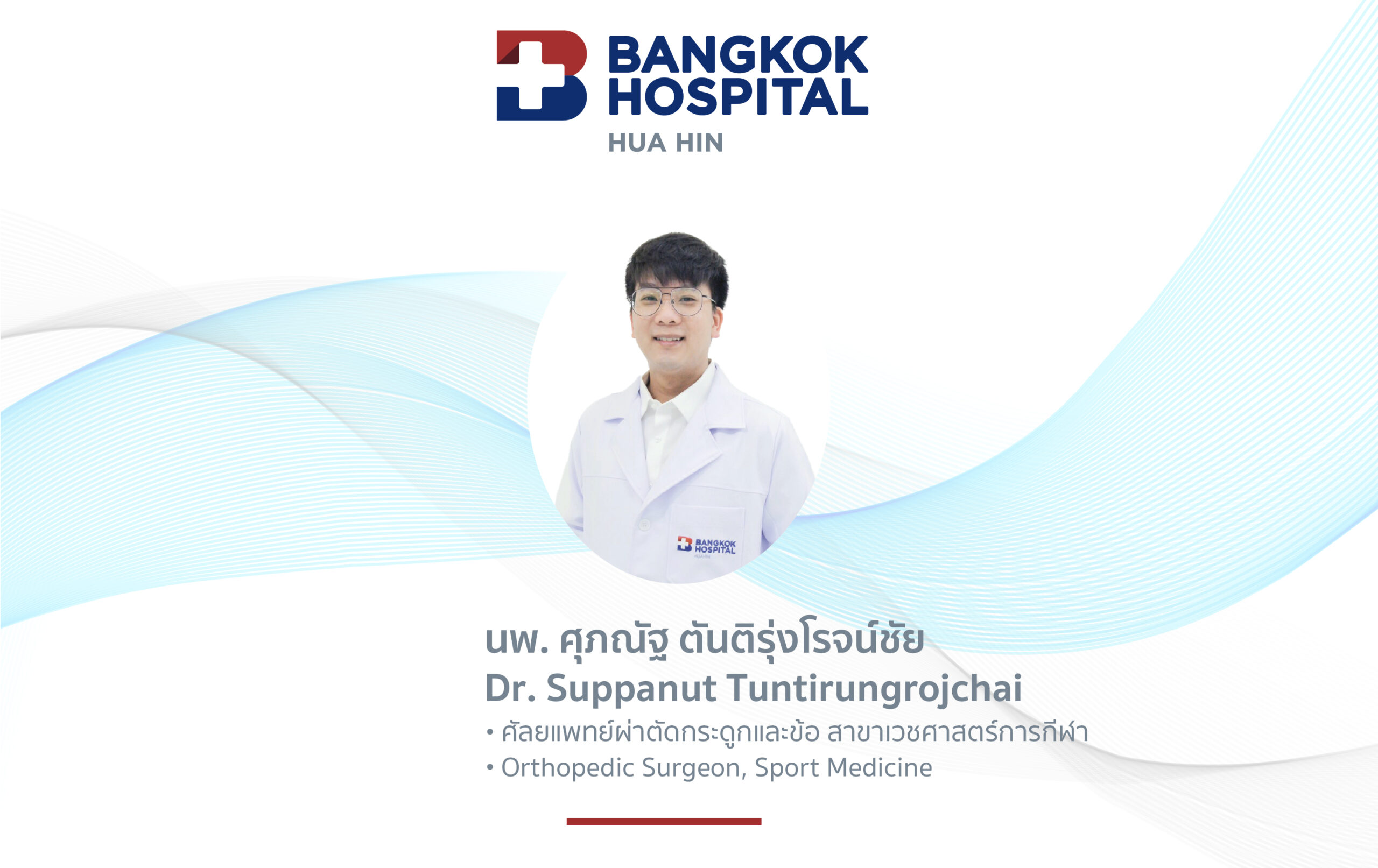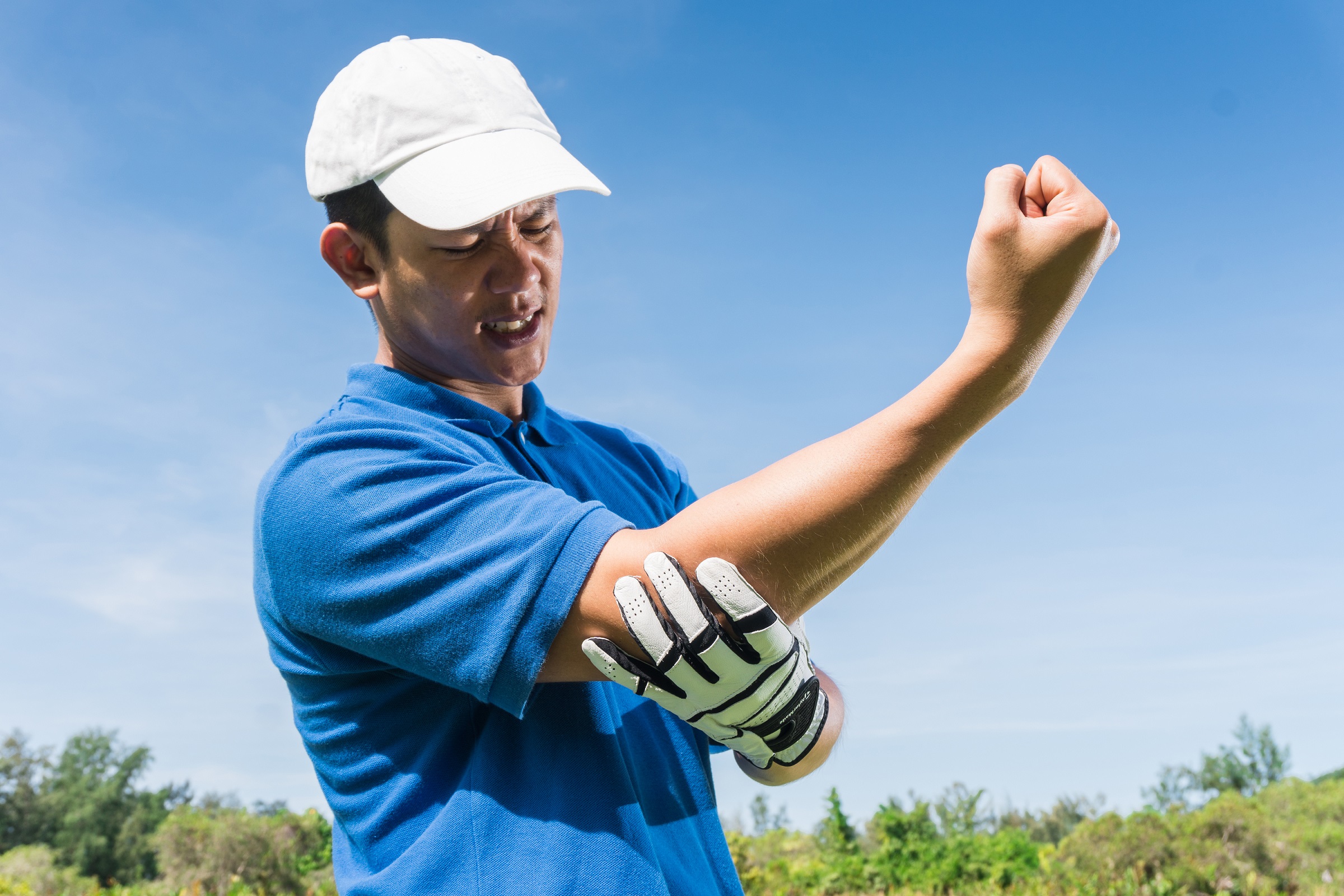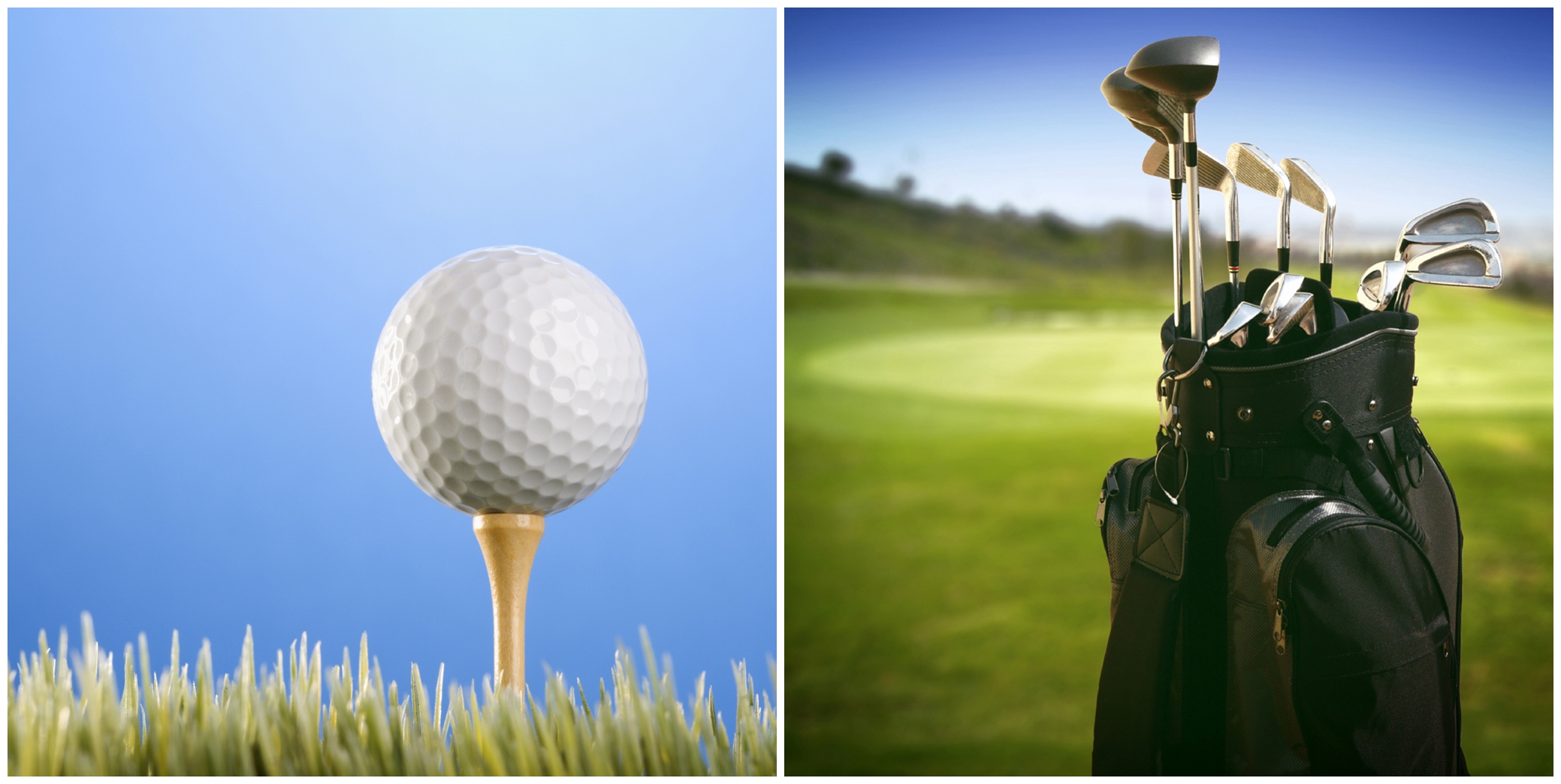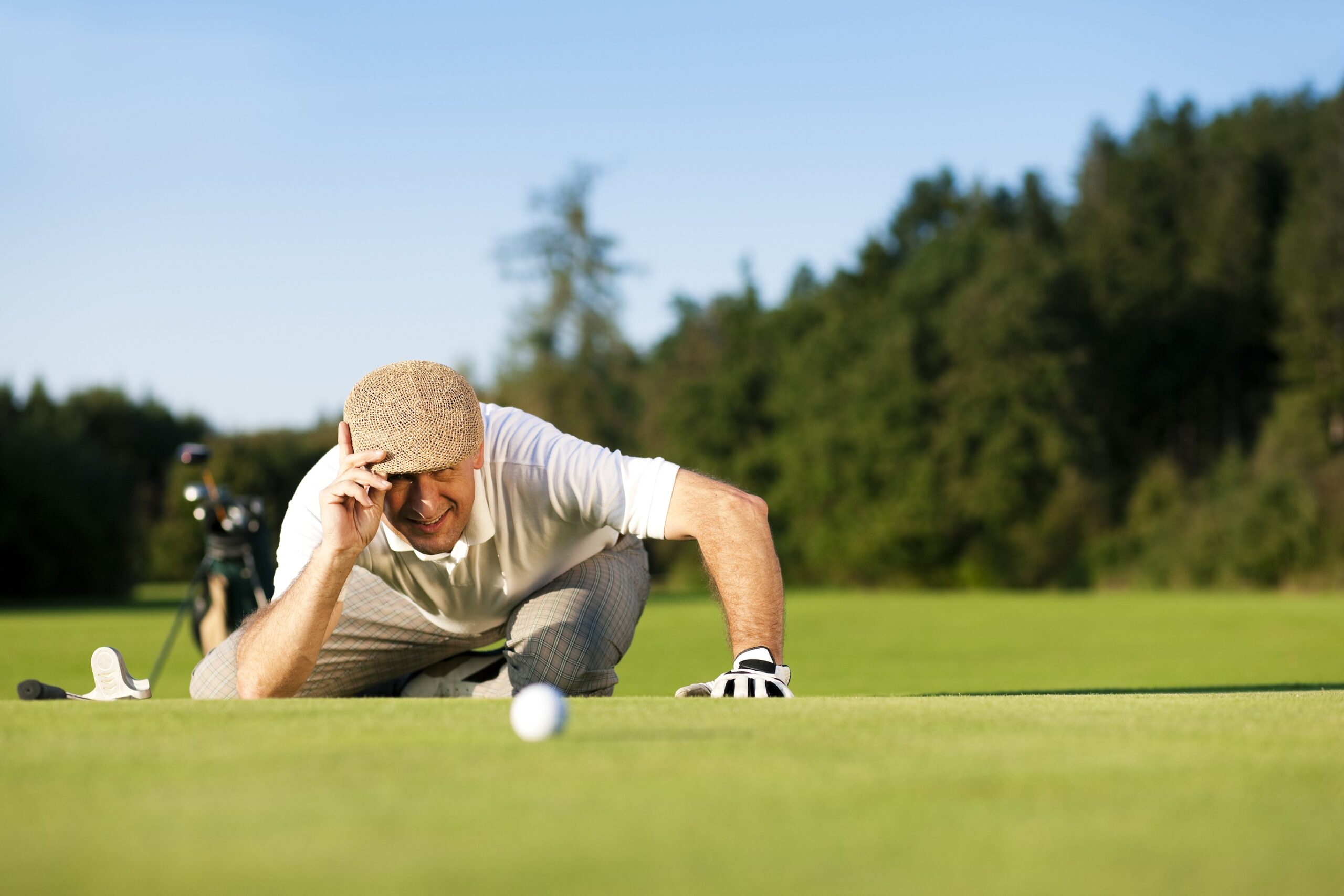Avoid Golf Injuries by Understanding Potential Risks
“Golf” remains a widely embraced sport for all ages and genders. From childhood through adulthood and into old age, golf is enjoyed recreationally and professionally. Despite its non-physical appearance, golf carries injury risks from minor to severe, stemming from both overuse and sudden accidents.
 Dr. Suppanut Tuntirungrojchai, our orthopedic surgeon specializing in sports medicine at Bangkok Hospital Hua Hin, emphasizes the vital role of physical readiness for golfers. Proper preparation before playing is key. Always start with a good warm-up, including stretches, to get your blood flowing and muscles ready. After your game, it’s crucial to release any built-up muscle tension. Also, picking the right golf equipment that suits your playing style and swing is essential for safety. Here are the main things to watch out for when it comes to golf injuries:
Elbows The term “Golfer’s Elbow” is indicative of a recurring pain phenomenon associated with the sport. In the case of right-handed individuals, this condition predominantly affects the inner ligament of the right elbow, referred to as Medial Epicondylitis, or alternatively, the outer side of the left elbow, known as Lateral Epicondylitis. Individuals experiencing symptoms commonly report feeling elbow pain, particularly during activities that involve forceful swings. This can result in muscular strain, persistent discomfort, inflammation, and even the potential for tendon tears.
Dr. Suppanut Tuntirungrojchai, our orthopedic surgeon specializing in sports medicine at Bangkok Hospital Hua Hin, emphasizes the vital role of physical readiness for golfers. Proper preparation before playing is key. Always start with a good warm-up, including stretches, to get your blood flowing and muscles ready. After your game, it’s crucial to release any built-up muscle tension. Also, picking the right golf equipment that suits your playing style and swing is essential for safety. Here are the main things to watch out for when it comes to golf injuries:
Elbows The term “Golfer’s Elbow” is indicative of a recurring pain phenomenon associated with the sport. In the case of right-handed individuals, this condition predominantly affects the inner ligament of the right elbow, referred to as Medial Epicondylitis, or alternatively, the outer side of the left elbow, known as Lateral Epicondylitis. Individuals experiencing symptoms commonly report feeling elbow pain, particularly during activities that involve forceful swings. This can result in muscular strain, persistent discomfort, inflammation, and even the potential for tendon tears.
 Wrists Golf involves lots of wrist movement. Twisting or hitting forcefully can lead to inner wrist pain. If you grip the club wrongly during swings, you can hurt your wrist muscles and cause swelling and tears in the ligaments. There’s a wrist bone called the Hamate that’s easy to injure, especially while swinging in golf. If you get hurt, it’s smart to see a doctor who can help you get better.
Back Many golfers encounter back issues, such as muscle strain in the lower back, which can result from demanding activities. Beginners often experience muscle inflammation or tears due to improper body rotation or incorrect elbow movements during swings. This places undue stress on the lower back muscles, impacting joints and spinal cushions, leading to restricted movement.
Professionals, on the other hand, may contend with muscle and bone injuries at the base of the neck, dislocated joints, or inflamed intervertebral discs. For elderly golfers, fractures can arise from deteriorated spine cushions. Carrying heavy bags and repetitive bending can worsen back pain. To alleviate discomfort, consider engaging alternative muscle groups like abdominals. This approach is recommended to minimize strain and enhance overall comfort during play.
Shoulder Golf’s repeated up-and-down swing motions can lead to irritation or even tears in shoulder ligaments as they rub against bones. This concern is particularly relevant for older individuals or those with a history of shoulder dislocations. These individuals face a heightened risk and may feel pain at the ends of their collarbones, which is associated with shoulder injuries involving the AC joints. It’s important for these individuals to be aware of these risks and take necessary precautions to avoid potential discomfort or injury.
Wrists Golf involves lots of wrist movement. Twisting or hitting forcefully can lead to inner wrist pain. If you grip the club wrongly during swings, you can hurt your wrist muscles and cause swelling and tears in the ligaments. There’s a wrist bone called the Hamate that’s easy to injure, especially while swinging in golf. If you get hurt, it’s smart to see a doctor who can help you get better.
Back Many golfers encounter back issues, such as muscle strain in the lower back, which can result from demanding activities. Beginners often experience muscle inflammation or tears due to improper body rotation or incorrect elbow movements during swings. This places undue stress on the lower back muscles, impacting joints and spinal cushions, leading to restricted movement.
Professionals, on the other hand, may contend with muscle and bone injuries at the base of the neck, dislocated joints, or inflamed intervertebral discs. For elderly golfers, fractures can arise from deteriorated spine cushions. Carrying heavy bags and repetitive bending can worsen back pain. To alleviate discomfort, consider engaging alternative muscle groups like abdominals. This approach is recommended to minimize strain and enhance overall comfort during play.
Shoulder Golf’s repeated up-and-down swing motions can lead to irritation or even tears in shoulder ligaments as they rub against bones. This concern is particularly relevant for older individuals or those with a history of shoulder dislocations. These individuals face a heightened risk and may feel pain at the ends of their collarbones, which is associated with shoulder injuries involving the AC joints. It’s important for these individuals to be aware of these risks and take necessary precautions to avoid potential discomfort or injury.
 Golf injuries are often found in the upper portion: the shoulders, elbows, and wrists. However, injuries can also occur in the lower portion; these include:
Knees Golf’s extended standing stances can lead to improper knee rotation, resulting in injuries like ligament, cartilage, or intra-articular disc damage from faulty golf swings.
Ankles Twisting the ankle or erroneous golf movements can lead to Achilles tendinitis in the ankle. Ankle pain can also arise from accidents like slipping or tripping during golf.
Golf injuries are often found in the upper portion: the shoulders, elbows, and wrists. However, injuries can also occur in the lower portion; these include:
Knees Golf’s extended standing stances can lead to improper knee rotation, resulting in injuries like ligament, cartilage, or intra-articular disc damage from faulty golf swings.
Ankles Twisting the ankle or erroneous golf movements can lead to Achilles tendinitis in the ankle. Ankle pain can also arise from accidents like slipping or tripping during golf.
 “Sports injuries occur frequently, regardless of the sport type. This holds especially true for golf, affecting both beginners and professionals. Recognizing potential risks helps players respond promptly to incidents. Mastering proper golf swing techniques enables cautious physical activity to minimize injuries. If discomfort arises from an accident, cease activities and seek swift medical attention for proper treatment” Dr. Suppanut concludes.
**************************************************************************
For more information and booking an appointment, please contact :
Tel. 032-616-800 Call Center, Bangkok Hospital Hua Hin
Tel. 032-616-832 Orthopedic Department (8.00 – 17.00 hrs.)
News & Promotion >> Line ID : @bangkokhuahin
“Sports injuries occur frequently, regardless of the sport type. This holds especially true for golf, affecting both beginners and professionals. Recognizing potential risks helps players respond promptly to incidents. Mastering proper golf swing techniques enables cautious physical activity to minimize injuries. If discomfort arises from an accident, cease activities and seek swift medical attention for proper treatment” Dr. Suppanut concludes.
**************************************************************************
For more information and booking an appointment, please contact :
Tel. 032-616-800 Call Center, Bangkok Hospital Hua Hin
Tel. 032-616-832 Orthopedic Department (8.00 – 17.00 hrs.)
News & Promotion >> Line ID : @bangkokhuahin
 Dr. Suppanut Tuntirungrojchai, our orthopedic surgeon specializing in sports medicine at Bangkok Hospital Hua Hin, emphasizes the vital role of physical readiness for golfers. Proper preparation before playing is key. Always start with a good warm-up, including stretches, to get your blood flowing and muscles ready. After your game, it’s crucial to release any built-up muscle tension. Also, picking the right golf equipment that suits your playing style and swing is essential for safety. Here are the main things to watch out for when it comes to golf injuries:
Elbows The term “Golfer’s Elbow” is indicative of a recurring pain phenomenon associated with the sport. In the case of right-handed individuals, this condition predominantly affects the inner ligament of the right elbow, referred to as Medial Epicondylitis, or alternatively, the outer side of the left elbow, known as Lateral Epicondylitis. Individuals experiencing symptoms commonly report feeling elbow pain, particularly during activities that involve forceful swings. This can result in muscular strain, persistent discomfort, inflammation, and even the potential for tendon tears.
Dr. Suppanut Tuntirungrojchai, our orthopedic surgeon specializing in sports medicine at Bangkok Hospital Hua Hin, emphasizes the vital role of physical readiness for golfers. Proper preparation before playing is key. Always start with a good warm-up, including stretches, to get your blood flowing and muscles ready. After your game, it’s crucial to release any built-up muscle tension. Also, picking the right golf equipment that suits your playing style and swing is essential for safety. Here are the main things to watch out for when it comes to golf injuries:
Elbows The term “Golfer’s Elbow” is indicative of a recurring pain phenomenon associated with the sport. In the case of right-handed individuals, this condition predominantly affects the inner ligament of the right elbow, referred to as Medial Epicondylitis, or alternatively, the outer side of the left elbow, known as Lateral Epicondylitis. Individuals experiencing symptoms commonly report feeling elbow pain, particularly during activities that involve forceful swings. This can result in muscular strain, persistent discomfort, inflammation, and even the potential for tendon tears.
 Wrists Golf involves lots of wrist movement. Twisting or hitting forcefully can lead to inner wrist pain. If you grip the club wrongly during swings, you can hurt your wrist muscles and cause swelling and tears in the ligaments. There’s a wrist bone called the Hamate that’s easy to injure, especially while swinging in golf. If you get hurt, it’s smart to see a doctor who can help you get better.
Back Many golfers encounter back issues, such as muscle strain in the lower back, which can result from demanding activities. Beginners often experience muscle inflammation or tears due to improper body rotation or incorrect elbow movements during swings. This places undue stress on the lower back muscles, impacting joints and spinal cushions, leading to restricted movement.
Professionals, on the other hand, may contend with muscle and bone injuries at the base of the neck, dislocated joints, or inflamed intervertebral discs. For elderly golfers, fractures can arise from deteriorated spine cushions. Carrying heavy bags and repetitive bending can worsen back pain. To alleviate discomfort, consider engaging alternative muscle groups like abdominals. This approach is recommended to minimize strain and enhance overall comfort during play.
Shoulder Golf’s repeated up-and-down swing motions can lead to irritation or even tears in shoulder ligaments as they rub against bones. This concern is particularly relevant for older individuals or those with a history of shoulder dislocations. These individuals face a heightened risk and may feel pain at the ends of their collarbones, which is associated with shoulder injuries involving the AC joints. It’s important for these individuals to be aware of these risks and take necessary precautions to avoid potential discomfort or injury.
Wrists Golf involves lots of wrist movement. Twisting or hitting forcefully can lead to inner wrist pain. If you grip the club wrongly during swings, you can hurt your wrist muscles and cause swelling and tears in the ligaments. There’s a wrist bone called the Hamate that’s easy to injure, especially while swinging in golf. If you get hurt, it’s smart to see a doctor who can help you get better.
Back Many golfers encounter back issues, such as muscle strain in the lower back, which can result from demanding activities. Beginners often experience muscle inflammation or tears due to improper body rotation or incorrect elbow movements during swings. This places undue stress on the lower back muscles, impacting joints and spinal cushions, leading to restricted movement.
Professionals, on the other hand, may contend with muscle and bone injuries at the base of the neck, dislocated joints, or inflamed intervertebral discs. For elderly golfers, fractures can arise from deteriorated spine cushions. Carrying heavy bags and repetitive bending can worsen back pain. To alleviate discomfort, consider engaging alternative muscle groups like abdominals. This approach is recommended to minimize strain and enhance overall comfort during play.
Shoulder Golf’s repeated up-and-down swing motions can lead to irritation or even tears in shoulder ligaments as they rub against bones. This concern is particularly relevant for older individuals or those with a history of shoulder dislocations. These individuals face a heightened risk and may feel pain at the ends of their collarbones, which is associated with shoulder injuries involving the AC joints. It’s important for these individuals to be aware of these risks and take necessary precautions to avoid potential discomfort or injury.
 Golf injuries are often found in the upper portion: the shoulders, elbows, and wrists. However, injuries can also occur in the lower portion; these include:
Knees Golf’s extended standing stances can lead to improper knee rotation, resulting in injuries like ligament, cartilage, or intra-articular disc damage from faulty golf swings.
Ankles Twisting the ankle or erroneous golf movements can lead to Achilles tendinitis in the ankle. Ankle pain can also arise from accidents like slipping or tripping during golf.
Golf injuries are often found in the upper portion: the shoulders, elbows, and wrists. However, injuries can also occur in the lower portion; these include:
Knees Golf’s extended standing stances can lead to improper knee rotation, resulting in injuries like ligament, cartilage, or intra-articular disc damage from faulty golf swings.
Ankles Twisting the ankle or erroneous golf movements can lead to Achilles tendinitis in the ankle. Ankle pain can also arise from accidents like slipping or tripping during golf.
 “Sports injuries occur frequently, regardless of the sport type. This holds especially true for golf, affecting both beginners and professionals. Recognizing potential risks helps players respond promptly to incidents. Mastering proper golf swing techniques enables cautious physical activity to minimize injuries. If discomfort arises from an accident, cease activities and seek swift medical attention for proper treatment” Dr. Suppanut concludes.
**************************************************************************
For more information and booking an appointment, please contact :
Tel. 032-616-800 Call Center, Bangkok Hospital Hua Hin
Tel. 032-616-832 Orthopedic Department (8.00 – 17.00 hrs.)
News & Promotion >> Line ID : @bangkokhuahin
“Sports injuries occur frequently, regardless of the sport type. This holds especially true for golf, affecting both beginners and professionals. Recognizing potential risks helps players respond promptly to incidents. Mastering proper golf swing techniques enables cautious physical activity to minimize injuries. If discomfort arises from an accident, cease activities and seek swift medical attention for proper treatment” Dr. Suppanut concludes.
**************************************************************************
For more information and booking an appointment, please contact :
Tel. 032-616-800 Call Center, Bangkok Hospital Hua Hin
Tel. 032-616-832 Orthopedic Department (8.00 – 17.00 hrs.)
News & Promotion >> Line ID : @bangkokhuahin